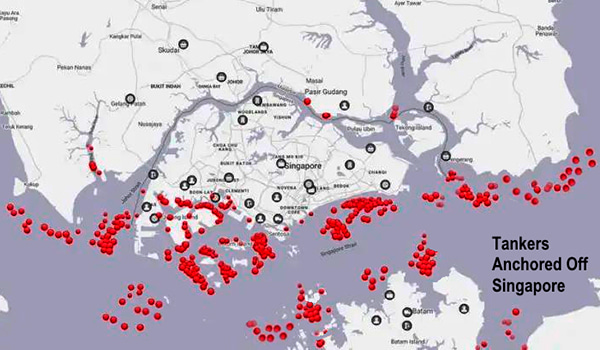Oil is given for nothing, but it's too expensive
Dear Clients,
Exchange-traded funds refuse to buy WTI futures, and the idea of protecting capital by early rollover from July contracts to August and December is losing its relevance. After a week of growth on expectations of quarantine removal and the start of a new OPEC deal, Brent and WTI benchmarks are looking down again.
At opening of week of May 4-11, manager of the Hong Kong fund with assets of $500 mln informed Bloomberg that his broker did not allow him to increase his position in all futures of the current year. The cost of raw materials in the physical market is even lower than spot quotes show. For example, price of the Dated Brent brand (physical standard of the market mark), taking into account shipment for 10-30 days in advance, has not risen above $10 for a long time, and Nigeria offers its brands Bonny Light and Qua Iboe for $7-9.
According to Goldman Sachs, since beginning of 2020, more than 700 million barrels have accumulated in storage without end customers. Ground containers are 75% full, Cushing tanks are flooded above the technological limit of 80%, and in June the level could rise to 90%, which is considered a direct security risk. 1.7 million barrels of «private» oil is stored in the SPR, and this should be removed first when overflowing. But where to transfer such oil?
|

|
|
The freight price of offshore platforms is growing, 37 tankers are standing in oil congestion off the coast of Northwest Europe, more than 150 are drifting in the port area of Singapore, and more than 20 VLCC class tankers with 20 million barrels on board off the coast of California. Southeast Asia's commercial overflow information is confirmed by S&P Global Platts. In addition to falling demand, reason for increase in stocks is considered to be difficulties with the transportation and unloading of ships under quarantine. Speculators are sure that 2-3 weeks are left until the next negative price collapse.
|

|
|
It is difficult to estimate extent of reduction by countries outside OPEC + that did not take any formal obligations. The Texas Commission will hold a vote on May 5-6 to reduce oil production, Norway has already reduced volume supplied to foreign market. So far, time is playing against the United States, although recent stock reports have come out less disastrous, which gives a chance to stabilize situation. As large consumers exit quarantine, the market expects a slight increase in demand by 10-15%; other factors will have to be adjusted by politicians.
|
|
|